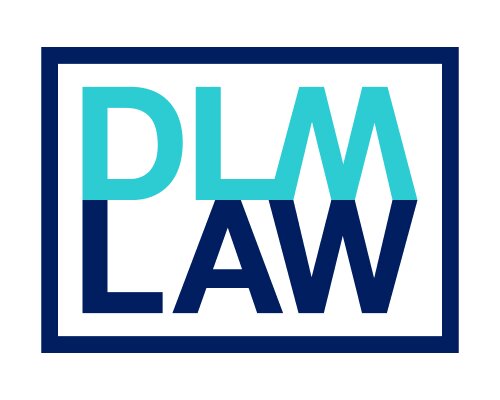Best Corporate Governance Lawyers in United States
Share your needs with us, get contacted by law firms.
Free. Takes 2 min.
Or refine your search by selecting a city:
List of the best lawyers in United States
About Corporate Governance Law in United States
Corporate governance in the United States refers to the system of rules, practices, and processes by which companies are directed and controlled. Corporate governance laws set the framework for how business decisions are made, how stakeholders interact, and how companies maintain accountability. Good corporate governance helps organizations ensure transparency, meet stakeholder expectations, comply with regulations, and achieve long-term sustainability. In the United States, corporate governance rules are shaped by federal laws, state laws, stock exchange requirements, and industry best practices.
Why You May Need a Lawyer
A legal professional can be invaluable when navigating corporate governance matters. Common scenarios where seeking legal help is critical include:
- Forming a corporation or modifying corporate structures
- Drafting and updating bylaws, shareholder agreements, and board policies
- Handling disputes among directors, officers, or shareholders
- Managing mergers, acquisitions, or complex financing transactions
- Ensuring compliance with state and federal regulations
- Responding to investigations or enforcement actions by regulatory agencies
- Implementing governance policies for publicly traded companies
- Overseeing fiduciary duties and conflict of interest situations
Local Laws Overview
Corporate governance in the United States is influenced by a mix of federal statutes, state corporate laws, and regulatory bodies. Each state has its own corporate statutes, with Delaware being a leading jurisdiction due to its well-developed case law and business-friendly environment. Key federal laws include the Sarbanes-Oxley Act, which strengthened financial disclosures and internal controls, and the Dodd-Frank Act, which expanded requirements regarding transparency and accountability for public companies. Publicly traded companies must also comply with SEC regulations and stock exchange listing requirements. Private companies often have more flexibility but are still bound by state laws and fiduciary obligations imposed on directors and officers.
Frequently Asked Questions
What is the purpose of corporate governance in the United States?
The main purpose is to create a system of checks and balances that ensures companies are directed and managed in the interests of shareholders and stakeholders, maintaining ethical behavior and compliance with the law.
Which laws primarily govern corporate governance in the United States?
The primary laws include state corporate statutes (like Delaware General Corporation Law), the Sarbanes-Oxley Act, the Dodd-Frank Act, SEC rules, and stock exchange requirements.
How do state and federal laws interact in corporate governance?
State laws typically govern the creation and internal management of corporations, while federal laws focus on transparency, reporting, and the regulation of securities, especially for public companies.
What fiduciary duties do directors and officers owe to a corporation?
Directors and officers owe duties of care and loyalty, requiring them to act in the best interests of the company, avoid conflicts of interest, and make informed decisions.
Are there specific requirements for board composition in US corporations?
Public companies must meet certain board independence and committee requirements set by stock exchanges. Private companies generally have more flexibility but must still comply with their own bylaws and state laws.
How are conflicts of interest resolved in corporate governance?
Conflicts must be disclosed to the board, and disinterested directors should handle the matter. Failure to address conflicts appropriately may breach fiduciary duties and result in liability.
What can shareholders do if they disagree with board decisions?
Shareholders can vote, call meetings, propose resolutions, or in some cases, bring derivative lawsuits against directors or officers for alleged wrongdoing.
What role does the Securities and Exchange Commission (SEC) play in corporate governance?
The SEC enforces securities laws, oversees financial disclosures, and sets key regulations impacting governance practices and transparency for public companies.
Do small and private companies need to follow the same governance rules as public companies?
No. While all companies must adhere to state laws and fiduciary duties, public companies must follow additional SEC and exchange rules, whereas private firms have more leeway but should still implement sound governance practices.
How often should a corporation update its bylaws and governance documents?
Best practice is to review corporate governance documents annually or in response to major legal or organizational changes to ensure continued compliance and relevance.
Additional Resources
Helpful resources and organizations for corporate governance in the United States include:
- United States Securities and Exchange Commission (SEC) - Regulates public companies and enforces federal securities laws.
- Public Company Accounting Oversight Board (PCAOB) - Oversees audits of public companies.
- State Departments of State or Division of Corporations - Resource for corporate filings and regulations (e.g., Delaware Division of Corporations).
- The Society for Corporate Governance - Provides education and support for governance professionals.
- American Bar Association (ABA) - Offers publications and guidance on corporate law.
Next Steps
If you need legal assistance in corporate governance, start by identifying the particular issue you are facing, such as board disputes, compliance concerns, or document updates. Gather any supporting documentation, such as bylaws, meeting minutes, or shareholder agreements. Next, consult a qualified corporate attorney with experience in your state or industry. Many law firms offer initial consultations to discuss your needs and outline possible solutions. Taking early action can help avoid potential legal pitfalls and ensure your company stays compliant and well-governed.
Lawzana helps you find the best lawyers and law firms in United States through a curated and pre-screened list of qualified legal professionals. Our platform offers rankings and detailed profiles of attorneys and law firms, allowing you to compare based on practice areas, including Corporate Governance, experience, and client feedback.
Each profile includes a description of the firm's areas of practice, client reviews, team members and partners, year of establishment, spoken languages, office locations, contact information, social media presence, and any published articles or resources. Most firms on our platform speak English and are experienced in both local and international legal matters.
Get a quote from top-rated law firms in United States — quickly, securely, and without unnecessary hassle.
Disclaimer:
The information provided on this page is for general informational purposes only and does not constitute legal advice. While we strive to ensure the accuracy and relevance of the content, legal information may change over time, and interpretations of the law can vary. You should always consult with a qualified legal professional for advice specific to your situation.
We disclaim all liability for actions taken or not taken based on the content of this page. If you believe any information is incorrect or outdated, please contact us, and we will review and update it where appropriate.
Browse corporate governance law firms by state in United States
Refine your search by selecting a state.

















